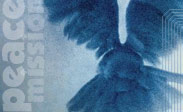


   |
|
Mikhail Sergeyevich Gorbachev -
USSR
Year: 1990 Nobel Peace Prize Cause: Leading role in the peace process which today characterizes important parts of the international community Biography Mikhail Sergeevich Gorbachev was born in the village of Privolnoye near Stavropol, Russia in 1931. He also worked on a collective farm, which in 1949 exceeded its harvest plan awarding young Gorbachev his first award, the Order of the Red Banner of Labor. Mikhail Gorbachev became a candidate member of the Communist Party the next year and a full member in 1952. Also in 1950, he entered the Moscow State University's Law School and graduated in 1955. Gorbachev married Raisa Titorenko, a philosophy student from the Moscow State University in 1956 and also was appointed the First Secretary of the Stavropol City Komsomol in the same year. Their daughter, Irina, was born later that same year. Gorbachev continued his political climb as the Department Head of Propaganda and the Second Secretary for the Kraicom (District Committee) in Stavropol. In 1961, he became a delegate to the 22nd Party Congress and accepted a position as Party organizer of one of the 16 territorial-production agricultural units in Stavropol krai. This marked Gorbachev's departure from Komsomol work and his beginning in mainline Party work. Later that year Gorbachev enrolled in The Department of Agricultural Economy at the Stavropol Agricultural Institute on a five-year correspondence course. In December of that year, Gorbachev is moved to the position of Head of the Department of Party Organs, Stavropol kraikom where he remained until 1966 when he was appointed the First Secretary of the Stavropol Gorkom (City Committee). In 1967, Gorbachev graduated from the Stavropol Agriculture Institute with an agriculture economy degree and was appointed Second Secretary Stavropol Kraikom, responsible for agriculture a year later. His performance continues to warrant his climb and in 1970, he is appointed the First Secretary of the Stavropol Kraikom and soon after is elected full member of the Central Committee at the 24th Party Congress. With this post, he became the Stavropol Area Representative in the Supreme Soviet in 1974. He traveled to West Germany in 1975 as head of an official delegation, on invitation of a local communist party. Gorbachev's phenomenal success was not all due to his own tenacity but also to the success of Kulakov, his superior throughout Gorbachev's political history in Stavropol. Kulakov showed himself as a very efficient agriculturalist and was appointed Head of Agriculture for the Central Committee in 1964. Kulakov implemented the "Ipatovsky Method" of harvesting in the Stavrapol area with the help of Gorbachev and in 1977, Stavropol overfulfilled it's harvest plan and the "Ipatovsky Method" is declared a complete success. Kulakov and Gorbachev are rocketed into the national limelight as Gorbachev was interviewed on the front page of Pravda, the Communist Party's newspaper. Later that year, Gorbachev received the honor of being appointed to the editorial commission responsible for the final draft of the new Soviet Constitution. In 1978, Gorbachev met Brezhnev and Chernenko to give a report on the good harvest again achieved by the Stavropol region. Gorbachev received the Order of the October Revolution later that year. By January of 1979, as Secretary of Central Committee in charge of Agriculture following Kulakov's death, Gorbachev was 28th in the Party Hierarchy. In November of that year he became a candidate member of the Politburo. As Head of Agriculture, Gorbachev began work on Brezhnev's 10-year Food Plan in 1980 but several bad harvests left Gorbachev's fate in limbo. Brezhnev's death in 1982 drew attention away from Gorbachev's seeming failures. He then began focusing on other national duties and in 1983, he headed up a Soviet delegation to Canada and later that year, he was left in charge of day-to-day operations while Andropov was on vacation. Gorbachev also headed the crisis management team in charge of the Korean Air Liner incident in Sakhalin. Andropov died in February 1984. Gorbachev moved up to second in command behind Chernenko who was elected General Secretary shortly thereafter. Due to Gorbachev's aptitude in foreign affairs, he was appointed to be the chairman of the Supreme Soviet Foreign Affairs Commission. In this position, Gorbachev first meets several top leaders of the world's nations. This post did not last long due to Chernenko's death in 1985. In March, Gorbachev was elected General Secretary of the Central Committee and takes control of the Union. Gorbachev was not Chernenko's preferred choice to replace him--Victor Grishin was. This led to some political turmoil at the beginning of Gorbachev's reign but as is usually true with Soviet leaders, his opponents were soon removed and replaced with loyal subjects. In 1989 the Soviet Bloc of states experienced an unprecedented fracturing which featured establishments of democratic politics and the distancing of several states from Soviet Russian control. In 1990 the Russian dominated Union of Soviet Socialist Republics itself was distressed by the rival policies of Gorbachev, of traditionalists who blamed him for importing destabilising foreign ideas without producing any real benefits, of Boris Yeltsin who held that yet more changes were needed to move Russia towards becoming a democracy, and of diverse (and often competing) nationalisms that hoped to exploit the new political climate in their efforts to secure localised nationalist objectives.In 1990 he was awarded the Nobel Peace Prize for his foreign policy initiatives. Gorbachev continued to press for democratization in the Soviet Union and permitted free elections in Russia and the other republics of the Soviet Union. He survived an attempted coup by Communist hardliners in 1991 but relinquished office after the elected presidents of the constituent republics undertook to replace the old Soviet Union with a Confederation of Independent States. Achivements Declared Time Man of the year in 1987 Awarded Nobel Peace Prize in 1997 for his foreign policy initiatives. Related Links 1987 Time Man of the Year -- Mikhail Gorbachev |